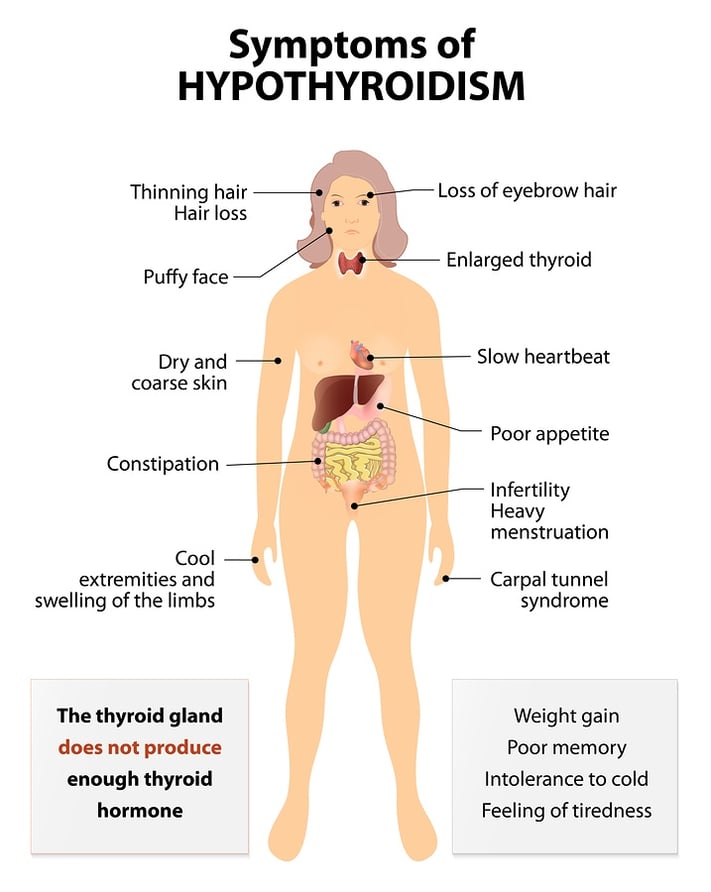
Despite a name that suggests a requirement for an absence of symptoms, subclinical hypothyroidism is purely a biochemical diagnosis. Subclinical hypothyroidism requires the presence of Elevated thyroid stimulating hormone level and Normal free thyroxine (free T4) levels. Patients may experience a variety of symptoms or none at all. Symptoms can include: fatigue, cold intolerance, consistent weight gain, depression, or memory problems.
The Causes of subclinical hypothyrodism
Subclinical hypothyroidism may manifest from Hashimoto's thyroiditis, thyroid damage from radiation treatment, and the use of iodine-containing medications.
Subclinical hypothyroidism can progress to overt hypothyroidsm. There is a higher rate of progression to overt hypothyroidism in individuals with positive anti-TPO antibodies (autoimmune thyroid conditions). These tests need to be repeated 1-3 months after the initials labs because thyroiditis (think inflammation) and non-thyroidal illness can spontaneously resolve. Transient sublinical hypothyroidism can appear in testing during silent, subacute or postpoartum thyroiditis. This might be consistent with a recovery period when new thyroid hormones are made.
Overtreatment with anti-thyroid medications, under treatment with thyroid hormone replacement, and iodine-containing medications such as amiodarone (medication used for AFib) may also lead to subclinical hypothyroidism.
What tests should you get?
Ask for serum thyroid stimulating hormone and free thyroxine levels (T4). I recommend free triiodothyronine (T3) and T3 uptake. You don't need an Ultrasound or thyroid nuclear uptake and scan.
What else could you have?
You can have another recent severe illness. I've seen patients with cancer, Lyme and other co-infections and autoimmune conditions test positive for subclinical hypothyroidism.
If you are taking anti-thyroid drugs or thyroid hormones - have your medications adjusted to normal TSH levels. Everyone who has TSH levels of 10 mU/L or higher needs treatment regardless of symptoms because if left untreated this will progress to overt hypothyroidism and potentially cardiovascular disease.
Most with subclinical hypothyroidism have TSH levels below 7.0 mU/L. Many elderly have TSH levels of 5 and 6 mU/L.TSH should be monitored every 6 to 12 months or ideally every 3 months.
At Second Nature in CT., we run full thyroid panels so you won't fall through the cracks. We even check your receptor status. We offer the best medicines to support your thyroid while we are healing your thyroid. WP Thyroid by RLC labs is an even better version that contains preprobiotics and coconut. It is the most natural and cleanest thyroid medication on the planet.
Our prescribed natural products have never been recalled by the FDA. They are not synthetic so they don't contain synthetic T4 hormones created in the lab that the body can't metabolize properly. Patients who take the natural treatment, on average, lost more weight.
Call us for your thyroid consult today. The summer is coming up and you can feel terrific. It's a choice.


